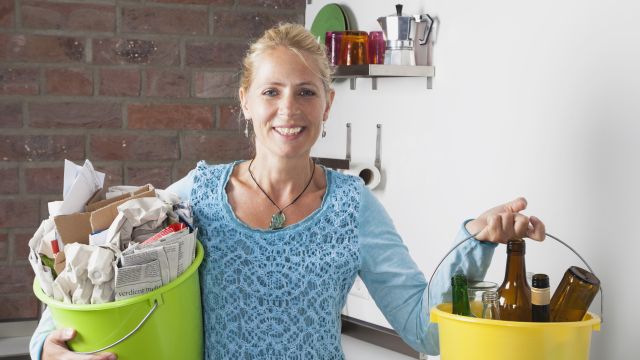Recycle, tidy your home during spring cleaning

Spring is the perfect time to clean out the attic, while recycling or donating items to be more green while you clean. (Getty Images)
As people transition from the dark winter into the spring sunshine, it is common for many to engage in a little “spring cleaning.” 
While cleaning out the attic, garage and closets, the University of Alabama at Birmingham Sustainability office recommends finding ways to recycle or donate items to be more green while you clean.
What are some commonly trashed items that could be recycled?
Generally, the most recycled items are cardboard, paper, aluminum and plastics; but it is a best practice to verify what can be recycled before beginning the process.
Emily Colpack from UAB’s Sustainability office notes that it is important to remember that not all plastics are recyclable.
“To confirm the type of plastic in an item, look on the bottom for a number in a triangle,” she said. “If there is no number, it is not recyclable, and you can throw it out.”
This extra step is important because recycling incorrect items could contaminate other recyclables.
“Contamination in a recycling stream often means all the recycling (in) with the contamination has to be thrown away.”
Additional steps to help keep the recycling stream clean include rinsing bottles and making sure recycled items are clean and free of any food remains or grease.
Getting started
A simple way to start good recycling habits is to place a recycling container next to the trash bin with a reminder list of what is and is not recyclable.
Another first step is to examine items before tossing them into the recycle bin.
“If there is any plastic on cardboard, like on some pasta boxes for example, you can easily rip the plastic out to ensure the cardboard will get appropriately recycled,” Colpack said.
Zero waste
Reducing waste is more sustainable than recycling and, in some instances, can be easier and cheaper.
“The best sustainable practice is to not have to recycle at all,” Colpack said. Here are some simple ways to reduce waste:
- Buy laundry strips that will replace your liquid detergent.
- Buy reusable sponges that can be washed in the washing machine.
- Use old T-shirts as cleaning rags or buy reusable paper towels.
- Composting can help reduce food waste.
- Donate clothing that you do not actively use.
“Spring cleaning is an excellent time to take inventory of what you already have – this way, you are less likely to buy duplicates of something you already own,” Colpack said.
This story originally appeared on the UAB News website.





